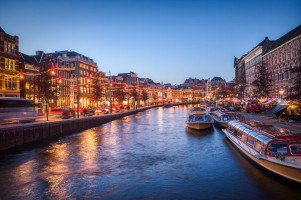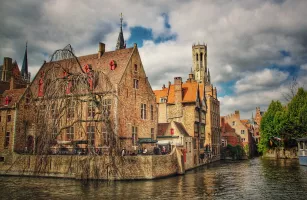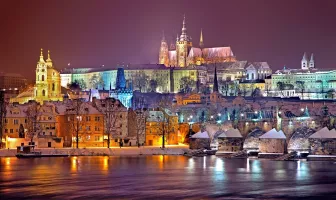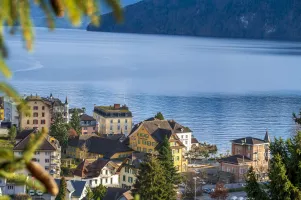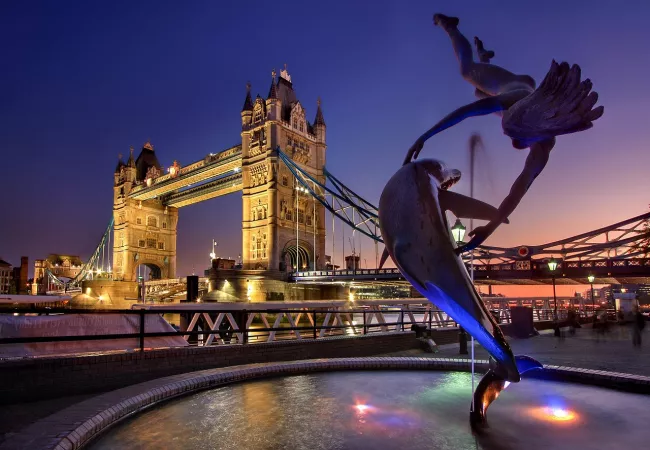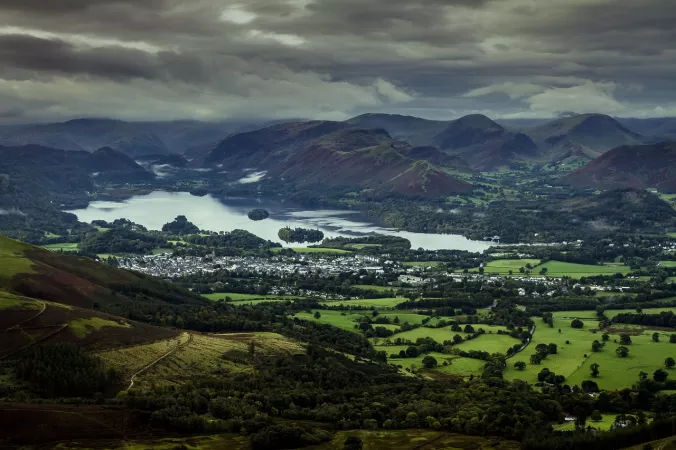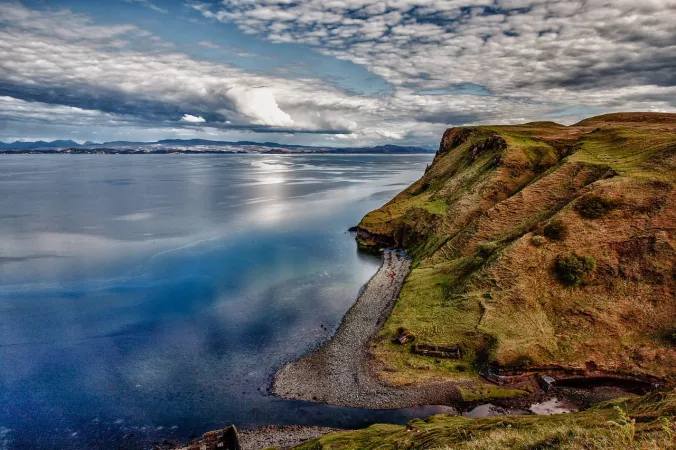
The Isle of Skye
Duration
3 to 7 Days
3 to 7 Days
Best time to visit
May-Aug
May-Aug
Theme
Hill Station, Adventure, Heritage, Waterfront
Hill Station, Adventure, Heritage, Waterfront
The Isle of Skye Travel Guide
The Isle of Skye is a picturesque island located off the west coast of Scotland. Known for its rugged landscapes, medieval castles, and vibrant Gaelic culture, Skye is a destination that attracts nature lovers, hikers, and history enthusiasts alike. The island's rich history dates back to prehistoric times, with evidence of ancient settlements and Viking invasions. Skye's dramatic cliffs, rolling hills, and crystal-clear lochs make it a haven for outdoor activities and exploration.Top Attractions in The Isle of Skye
- The Old Man of Storr
- Dunvegan Castle
- Fairy Pools
- Quiraing
- Talisker Distillery
The Isle of Skye is Famous for
Its dramatic landscapes and medieval castles.Top Attractions in The Isle of Skye
- Exploring the Old Man of Storr
- Visiting the historic Dunvegan Castle
- Swimming in the crystal-clear Fairy Pools
- Hiking the otherworldly Quiraing
- Tasting whisky at the Talisker Distillery
What's Great about Travelling to The Isle of Skye?
- Perfect for nature lovers
- Great for hiking and outdoor activities
- Rich in history and culture
What's Not So Great about Travelling to The Isle of Skye?
- Can be crowded during peak tourist seasons
- Limited public transportation options
- Weather can be unpredictable
Travel Tips for The Isle of Skye
- Check weather conditions before hiking
- Book accommodations in advance
- Rent a car for flexibility in exploring the island
Important The Isle of Skye trip information
- Ideal Duration: A minimum of 3-5 days
- Best Time to Visit: May to September for milder weather
- Nearby Airports and Railway Stations: The closest airport is in Inverness, and the nearest train station is in Kyle of Lochalsh
Per Person
70,000
*EXCLUDING APPLICABLE TAXES 5.0 Ratings
( 4 Reviews )
( 4 Reviews )
Per Person
1,85,500
*EXCLUDING APPLICABLE TAXES 5.0 Ratings
( 20 Reviews )
( 20 Reviews )
Total
5,32,000
*EXCLUDING APPLICABLE TAXES 5.0 Ratings
( 20 Reviews )
( 20 Reviews )
Total
3,94,500
*EXCLUDING APPLICABLE TAXES 5.0 Ratings
( 20 Reviews )
( 20 Reviews )
Per Person
2,37,500
*EXCLUDING APPLICABLE TAXES 5.0 Ratings
( 20 Reviews )
( 20 Reviews )
Total
4,15,000
*EXCLUDING APPLICABLE TAXES 5.0 Ratings
( 20 Reviews )
( 20 Reviews )
FAQ's on The Isle of Skye
Q1: What is the best time to visit The Isle of Skye?
The best time to visit The Isle of Skye is during the summer months from May to September when the weather is milder, and the days are longer. This is also the peak tourist season with many events and festivals taking place, making it a vibrant time to explore the island.
Q2: Do I need a visa to travel to The Isle of Skye?
As The Isle of Skye is part of Scotland, if you are from the UK or an EU/EEA country, you do not need a visa to visit. However, travelers from other countries may need a visa. It's essential to check the specific visa requirements based on your nationality before planning your trip.
Q3: What are the must-visit attractions in The Isle of Skye?
The Isle of Skye is known for its stunning landscapes, including the Old Man of Storr, Fairy Pools, Quiraing, Dunvegan Castle, and the Talisker Distillery. Don't miss exploring the picturesque villages like Portree and the diverse wildlife on the island.
Q4: Is The Isle of Skye a safe place to travel?
The Isle of Skye is generally a safe destination for travelers. However, like any other place, it's essential to take precautions, especially when hiking or exploring remote areas. Be cautious of changing weather conditions and follow any safety guidelines provided.
Q5: What is the local currency in The Isle of Skye and can I use credit cards?
The local currency in The Isle of Skye, as part of Scotland, is the British Pound (£). Credit cards are widely accepted in most establishments, but it's advisable to carry some cash, especially when visiting more rural areas where card machines may not always be available.
Q6: What is the local cuisine like in The Isle of Skye?
The Isle of Skye offers a variety of local delicacies, including fresh seafood like salmon and scallops, traditional Scottish dishes like haggis, and delicious desserts such as cranachan. Vegetarian and vegan options are also available in many restaurants and cafes.
Q7: What transportation options are available in The Isle of Skye?
Transportation options on The Isle of Skye include buses, car rentals, and taxis. Hiring a car is a popular choice for exploring the island at your own pace, but public buses are also available, connecting major towns and attractions.
Q8: Are there any cultural norms or etiquette I should be aware of when visiting The Isle of Skye?
When visiting The Isle of Skye, it's important to respect the local customs and traditions. Greetings are generally polite, and it's customary to say "please" and "thank you." When visiting historic sites or natural landscapes, follow the "Leave No Trace" principles to preserve the beauty of the island for future visitors.
Q9: I am a travel agent. How can I buy travel leads of The Isle of Skye?
Register yourself as a travel agent at agents.tripclap.com and then you can buy travel leads to The Isle of Skye once your account is approved. For more details contact our support team at +91-8069186564 or support@tripclap.com
